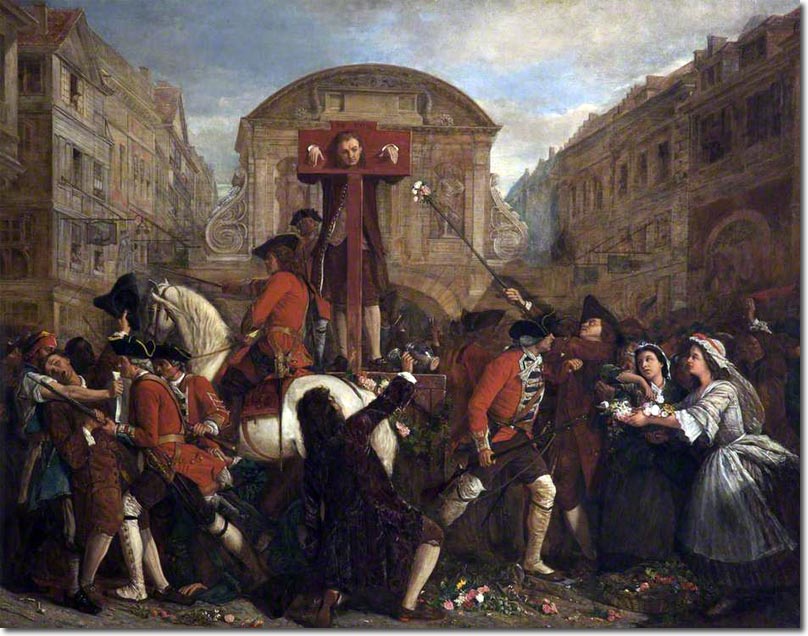|
|


|
| Defoe's pamphleteering and political activities resulted in his arrest and placement in a pillory on 31 July 1703, mainly due to the publication of The Shortest Way with Dissenters purporting to argue for the extermination of non-conformists. In the pamphlet he satirised both the High church Tories and those Dissenters who hypocritically practised so-called "occasional conformity". Though it was published anonymously, the true authorship was quickly discovered and Defoe was arrested and charged with seditious libel. After a trial at the Old Bailey in front of the notoriously sadistic judge Salathiel Lovell, Defoe was found guilty. Lovell sentenced him to a punitive fine, to public humiliation in a pillory, and to an indeterminate length of imprisonment which would only end upon the discharge of the punitive fine. After three days in the pillory, Defoe went into Newgate Prison. Robert Harley, 1st Earl of Oxford and Earl Mortimer, brokered his release in exchange for Defoe's co-operation as an intelligence agent for the Tories. In exchange for his cooperation with the rival political side, Harley paid Defoe's outstanding debts. |
Timelines | 18th Century Timeline
Armed Forces | Art and Culture | Articles | Biographies | Colonies | Discussion | Glossary | Home | Library | Links | Map Room | Sources and Media | Science and Technology | Search | Student Zone | Timelines | TV & Film | Wargames